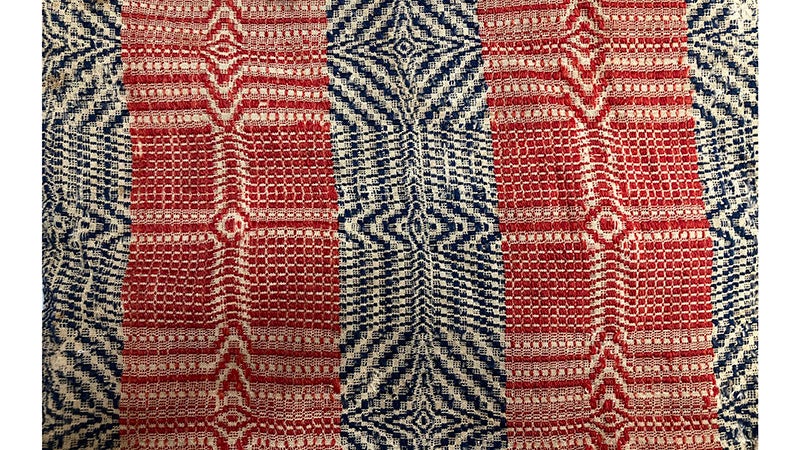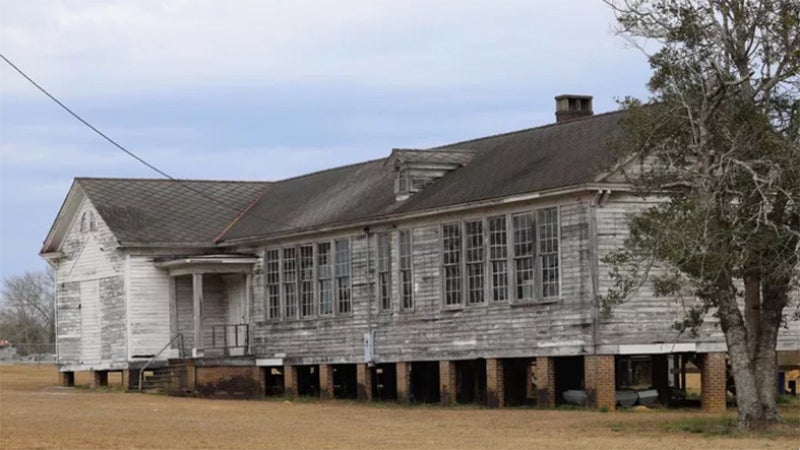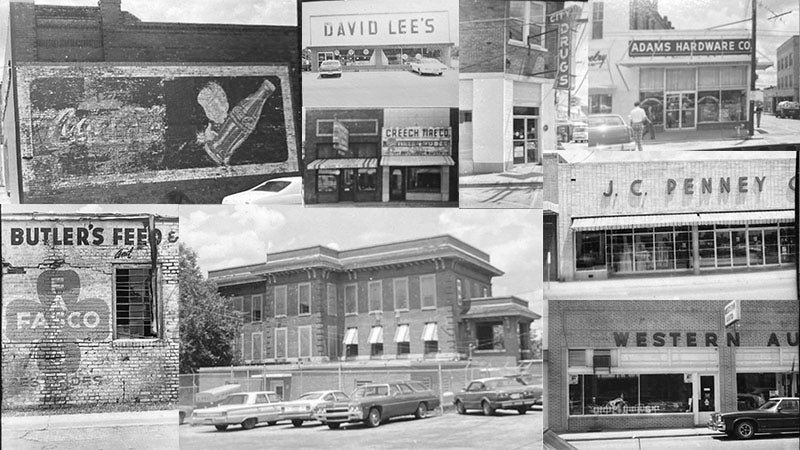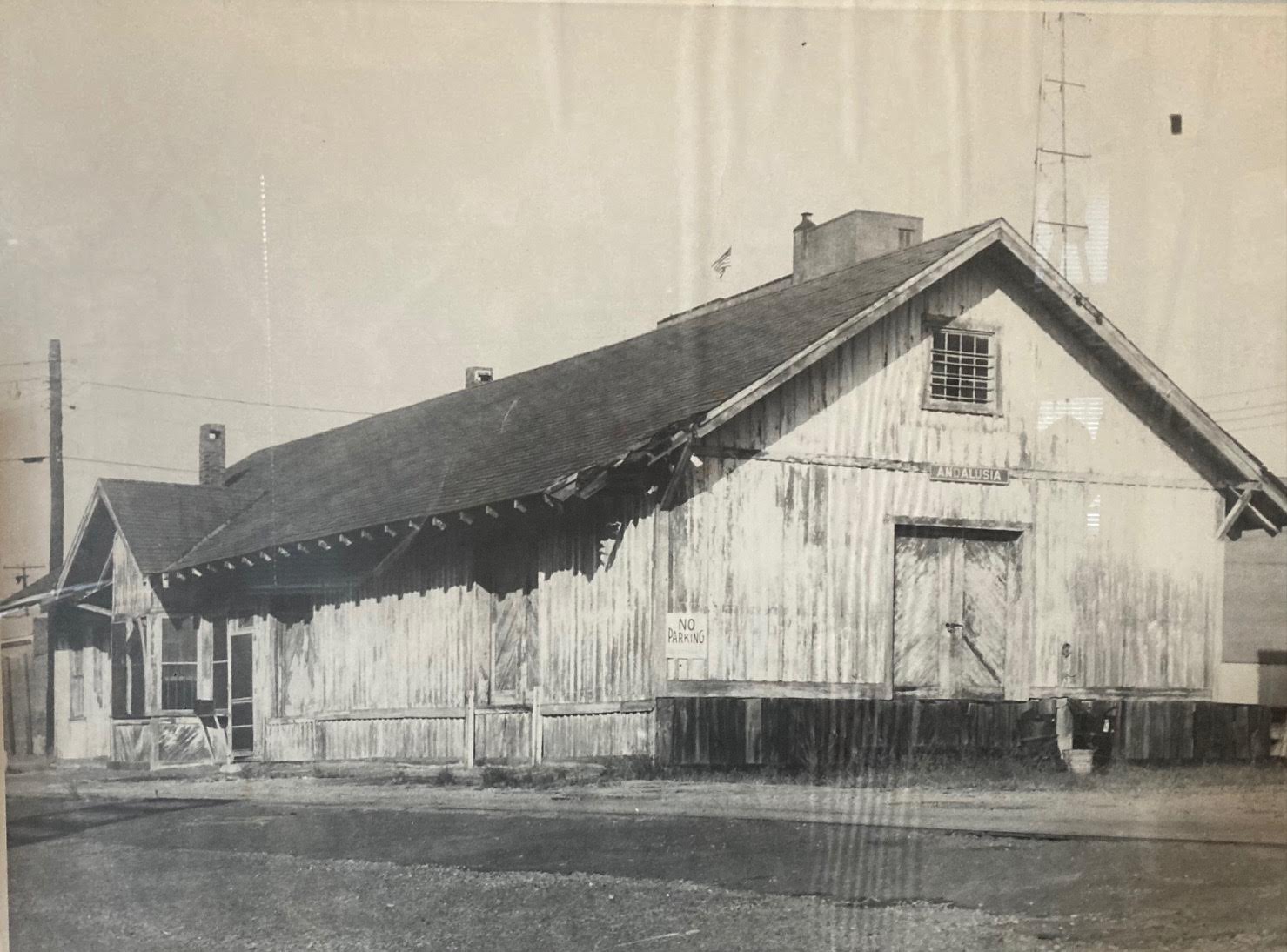Remember When: Mrs. Dugger taught Cathechism
Published 1:55 am Saturday, February 2, 2019

- A postcard of First Presbyterian Church.
The late G. Sidney Waits, Jr. once wrote many sketches of Andalusia history and in one of his stories, “Great Women in Andalusia’s Past,” he penned these words.
“The average woman is more prominent in today’s history than a few years ago. Women were busy raising their families and doing chores about the house under difficult conditions. And yet, when we look back in our Andalusia history, we can count many outstanding women and many achievements by women.”
“Yes,” he stated, “women have played a big part in the growth and development of Andalusia and Covington County. It is a tribute to their memory and their records of achievement that we pause today to think about and recall the wonderful memories associated with the great ladies in Andalusia’s history. I have heard it said ‘the best man for the job is a woman.’”
This week I attended the funeral of Lucy McArtan Doyle Brady, one of the bulwarks of the First Presbyterian Church of Andalusia. Her grandfather deeded the property there on South Three Notch that made it possible for the church to build on. A September 3,1906 deed recorded in Covington County (DB 25 PG 159) shows grantors D. A. (Duncan Archibald) McArtan and his wife Lucy McArtan and D. A. McRainey conveying that parcel of land to The First Presbyterian Church of Andalusia (a corporation organized under the backing of the State of Alabama), and its successors and assigns. Probate Judge J. M. Robinson, Jr. witnessed their signatures. Mr. McRainey was a business partner of Mr. McArtan. Their names appear frequently in the old Andalusia newspapers of the early 1900s. Lucy and I had many conversations together about the McArtan family of Scottish Presbyterian heritage.
McArtan Street is a city street running north off East College Street. The building across from the shoe shop on South Three Notch Street is known as the McArtan Building that was the site of the old Opera House. McRainey Street runs east off East Three Notch Street.
Whenever I attend a worship service at the Presbyterian Church, I often recall my growing up days there. I remember the large room behind the sanctuary that used to have large doors that could be closed. They have been permanently removed and pews are now installed in what was known back in the old days of the 1930s, 1940s, and 1950s as “Mrs. Dugger’s Room.” This room adjacent to the pastor’s study was apparently the library and Primary Department before the addition of the post WWII fellowship hall and Sunday School classroom rear addition.
Mrs. Oscar M. Dugger, Sr. was the wife of the editor-publisher of the old Andalusia Star. Mr. Dugger worked in that capacity for 30 years prior to his retirement in 1946. Ida Atwell Dugger was a native of Hutchins, Dallas County, Texas where she and Mr. Dugger were wed in 1905. They first resided in Greenville, Tennessee, where Mr. Dugger owned and published The Greenville Democrat before their move to Andalusia in 1916 when he purchased The Andalusia Star.
“An Andalusian for more than four decades,” Editor Ed Dannelly’s 1962 editorial reads, “Mrs. Dugger was a pioneer in many a civic undertaking. She was Andalusia’s first public librarian giving her services without fee, for the first fourteen years of the library operations.”
“The Primary Department of the First Presbyterian Sunday School was a ‘pet project’ of hers. This department received the benefits of her special interest for a period of more than 40 years. Upon her retirement from active direction of Sunday School affairs, Mrs. Dugger was honored in special ceremonies when she was presented a silver plaque. Attorney William Albritton who had been a pupil in Mrs. Dugger’s class made the presentation.”
“This Christian leadership is felt strongly in Andalusia today. There were adults who motored from out-of-town to her funeral in May of 1962 to pay tribute to the lady who steered them in the proper religious paths when they were children.”
“Mrs. Dugger helped organize the Mentor, Study, and Hortamentes Garden clubs and was awarded an honorary membership in the Garden Clubs of Alabama.”
“A loving Presbyterian tribute was paid Mrs. Dugger in Sunday afternoon services by the Rev. John Crowell of Mobile, a former Andalusia pastor, who officiated. Rev. Robert Malsbury, the incumbent minister, assisted in the final rites. Crowell stressed that the tribute was being voiced to ‘one who loved the church and one who was loved by church members.’”
“Organ music was by Mrs. William Albritton. Burial was in Andalusia Memorial Park beside the grave of her late husband.”
“Down at The Andalusia Star-News, the folks knew Mrs. Dugger as a dedicated newswoman. Even in her later years, she loved to drop by with or telephone items that were of keen interest. Often, she gave a helping hand that was uplifting. While recognizing Mrs. Dugger for her wonderful contributions to the religious, club, and cultural life of Andalusia, we loved her best as a newswoman for journalism’s ink was in her blood. We write this with a catch in our throats, a tear in our eyes, and grief in our hearts.”
This next memory was written by the Rev. K. C. Ptomey in the text of his sermon as he recalled his former Sunday School teacher at FPC of Andalusia. These are excerpts that should be of interest to those who remember or remember hearing about Mrs. Dugger. All I remember about Mrs. Dugger since I was a child in the 1950s was that her room had a gas space heater that heated up the room warm as toast. One could sit in the wooden folding type chairs and gaze at the beautiful stained glass windows there on the street side of the church building. I think that by that time, Mrs. Dugger had already gone to live close to a relative and eventually a nursing home in Clanton. By that time, I would not have had any recollection of her other than hearing her name. I did experience the same instruction that is about to be discussed in Rev. Ptomey’s sermon, but the age when some of us kids at FPC (Anne Evers, Emily Albritton, Tony Jackson, Charles ‘Chuck’ Rankin, Joey O’Rear) were drilled on The Children’s Cathechism was about age 9 and 10.
“Her name was Mrs. Dugger,” Rev. Ptomey began. “I cannot for the life of me remember much about what she looked like or the sound of her voice. I want to say that she was short of stature and wore her snow-white hair in a bun on the back of her head, but I could be wrong about that. Anyway, Mrs. Dugger was my first grade Sunday school teacher, and at the time, I thought she was older than God, and I was afraid of her. I can remember sitting in a little wooden chair in a room in the FPC of Andalusia, Mrs. Dugger hovering over me as I tried to recite from memory the answers to the questions in The Catechism.”
 “Q. Who made you? A. God. Q. What else did God make? A. God made me and all things. Q. Why did God make you and all things? A. For God’s own glory.”
“Q. Who made you? A. God. Q. What else did God make? A. God made me and all things. Q. Why did God make you and all things? A. For God’s own glory.”
Ptomey continues, “My memory is hazy, but I believe there was a large chart on the wall, and we received little gold stars if we did our memory work well. A catechism is simply a set of questions and answers based on a creed or confession of faith, a tool for learning the basic beliefs and doctrines of a particular faith tradition. Mrs. Dugger thought it was important for kids to learn the Children’s Catechism, because it was based on the Westminster Confession of Faith which was for generations the basic theological standard of the Presbyterian Church.”
“And so she drilled us and drilled us and drilled us. I think it had something to do with her passion for teaching basic Christian doctrine, her deep conviction that theology matters. I am convinced that her passion for things theological contributed to my becoming a person with a lifelong passion for theology. She planted the seed, and perhaps, more significantly, she gave me herself – her love, her attention, her care.”
“I think of Mrs. Dugger, my other Sunday School teachers, youth advisors, camp counselors, my parents, my mentors, and people who had concern and love for children – the people who have most influenced us, shaped us in profound ways. I am filled with gratitude and these models that taught what it means to be committed disciples of Jesus as Lord and Savior. I no longer remember the questions and answers of The Catechism, but I remember Mrs. Dugger who was an inspiring presence in my life. Now sixty-four years later, I look back with great appreciation for those Sundays under Mrs. Dugger’s tutelage.”
I give credit to the late David Walters for locating Rev. Ptomey’s sermon on the internet and forwarding it to me and other Presbyterian members and friends in 2012. I am sure Ptomey is most likely kin to some locals. Maybe someone reading this account can confirm it. Thanks to Linda Grimes Harrell, archivist at the Andalusia Public Library, for pointing me in the right direction to locate Mrs. Dugger’s front page obituary in the May 24, 1962 Andalusia Star News housed at the Three Notch Museum. When we Remember When, we learn about the past that leads us to a greater appreciation of the present and sometimes a concern for the future.
Sue Bass Wilson, AHS Class of 1965, is a local real estate broker and long-time member of the Covington Historical Society. She can be reached at suebwilson47@gmail.com.






